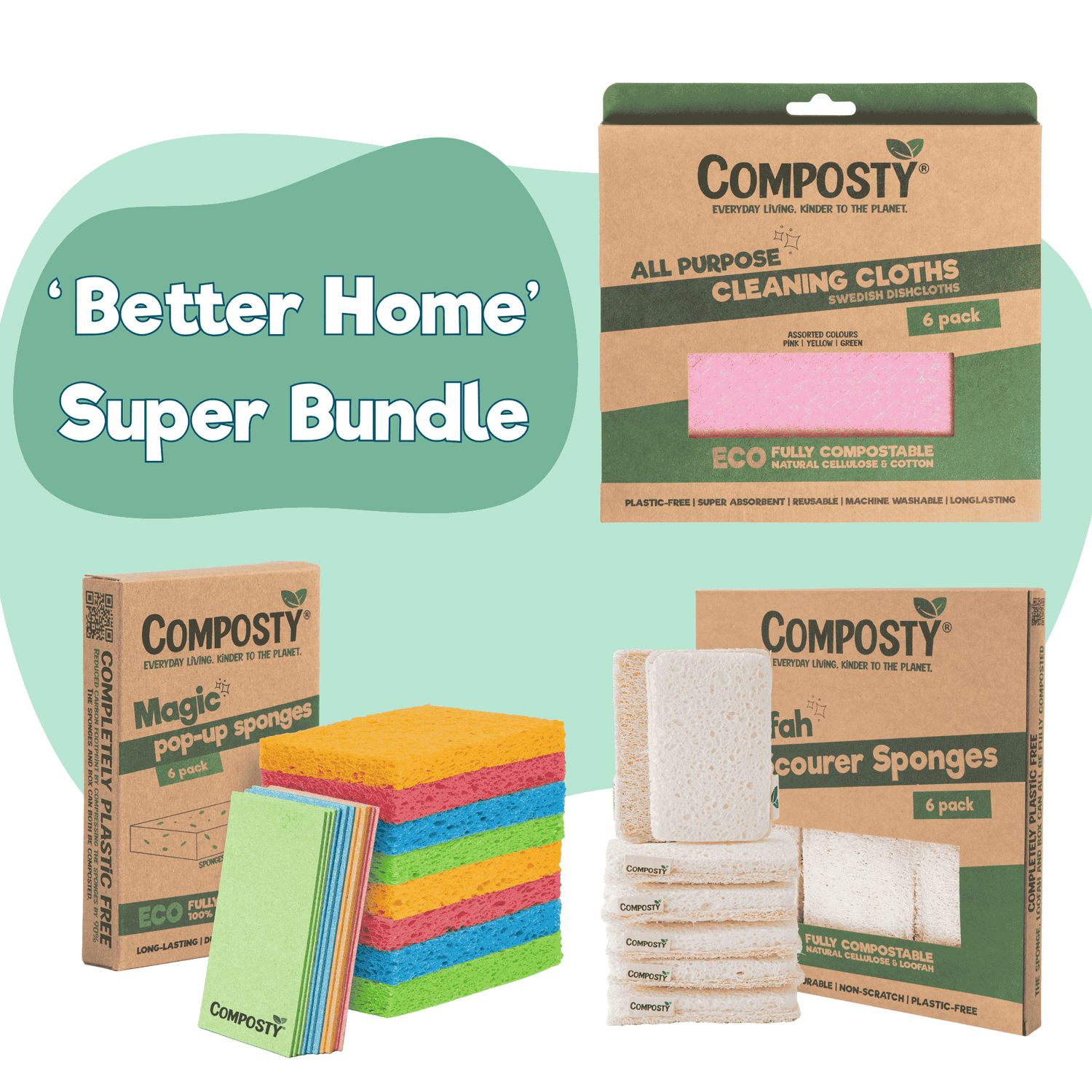Composty FAQs — The Better Sponge
Most of our range is made in a family-run, independently audited factory in China that we selected after over six months of vetting for ethics, working conditions and low-impact materials.
Our Swedish All-Purpose Dishcloths are made in Germany. We use FSC-sourced cellulose and partner with suppliers who share our values.
No. Our materials (cellulose, loofah, cotton, konjac) are widely recognised as home-compostable, and we commission independent life cycle assessments (LCAs) for key products like our Pop-Up Sponges and Loofah Scourer Sponges. We also invest 1% of all revenue back into the planet via Composty Cares.
The Composty Loofah Scourer Eco Sponge has been Good Housekeeping Institute (GHI) Approved and named Best Eco Sponge / Best Plastic-Free Sponge in independent testing (since 2023)
Cellulose is the plant-based fibre made from FSC-certified wood pulp. It’s renewable and used to make our sponges super-absorbent without plastic.
Our core materials are cellulose (FSC wood pulp), loofah (the dried fruit fibre), organic cotton stitching, and konjac for facial sponges. Product pages list exact compositions.
No. We use 100% natural, water-based dyes with no APEOs. Colours may gently fade with prolonged use—worth it to keep waterways healthy. (Our multi-colours also help task-segregation for better hygiene.)
Yes, they’re plastic-free—no polyurethane foams or polyester mesh layers—so they don’t shed microplastics down your sink. That’s a core reason customers switch to The Better Sponge.
It depends on the product, but all Composty items last at least a month or more with normal use.
• Konjac facial sponges: refresh by boiling for 1–2 minutes, then air-dry.
• Cellulose/loofah kitchen sponges & Swedish Dishcloths: refresh in the washing machine (no softener) or top-rack dishwasher. Rinse and let them dry between jobs; retire to compost when worn.
Yes. They ship flat to cut carbon and cupboard clutter. Add water once and they expand into a thick, non-scratch sponge—ready for dishes, counters and spills.
• Home compost: cut up and mix into your heap; they break down like plant matter.
• Wormery: worms love cellulose and loofah.
• Municipal/industrial composting: where accepted—check local rules.
Possibly—but you must check your local authority’s rules. Some councils may accept them; others don’t. Follow your council’s guidance for food-waste caddies.
Yes. They’re FSC-sourced cellulose cloths that are super-absorbent, reusable and home-compostable, replacing rolls of paper towels and reducing waste.
We’re UK-based and easy to reach at info@composty.earth or 0330 043 6023 (Mon–Fri).
“Compostable” materials break down like organic matter under composting conditions and are a subset of biodegradable. “Biodegradable” is a looser term without a timeframe or environment. That’s why we prioritise home-compostable, plant-based materials.
UK delivery is free over £20. Orders under £20: Standard (3–5 working days) £3.49; Express (1–2 working days) £5.99 where available.
International orders may incur local customs/duties/taxes.
Absolutely. Apply for trade access on our B2B portal for tiered pricing, bulk options and tracked delivery.

